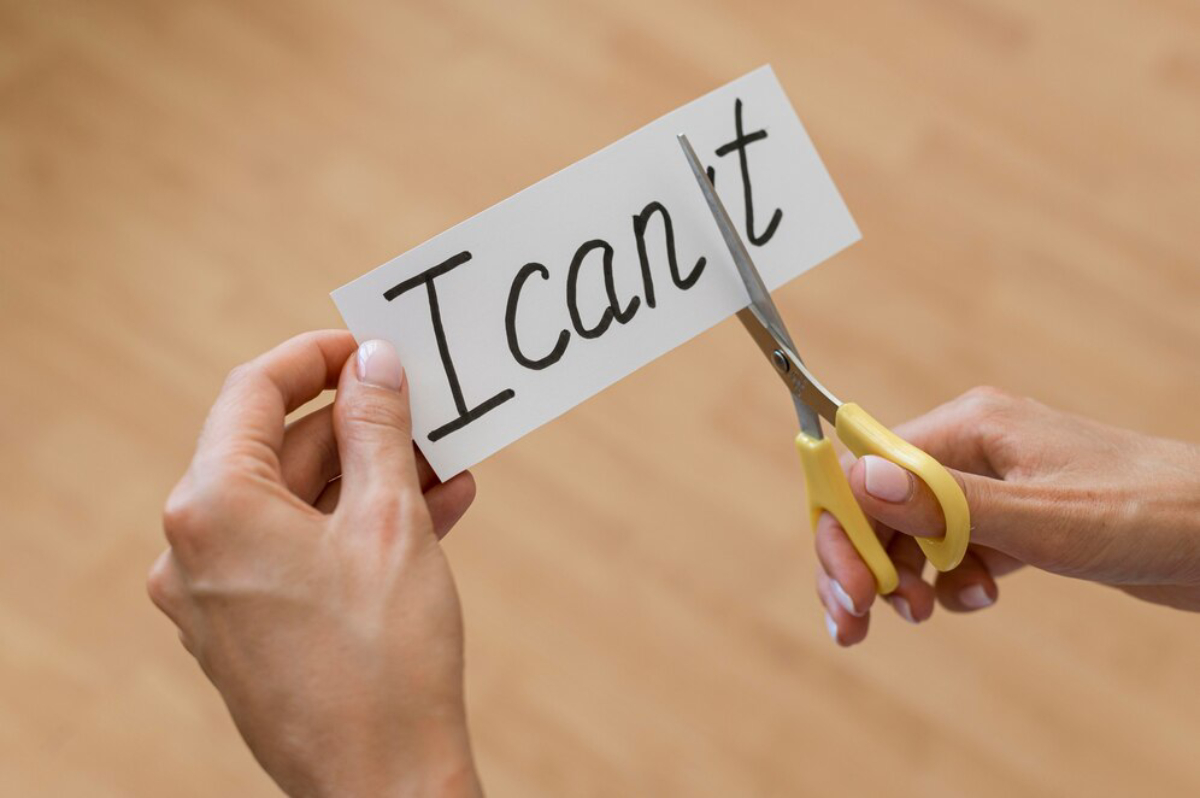The Personal Development Blog

How to Handle Criticism and Use It for Growth
In an era of rapid communication, where honesty moves like fire, and free speech encourages attacks, criticism is a natural fact of life. We all receive feedback on a daily basis — at work, during social settings or even in personal relationships: positive and negative. Indeed, while most of us see criticism as an assault upon our egos, a debilitating blow to our self-worth, it can in fact, serve as a potent means of developing and growing — both as an individual and as a professional.
Learning how to take constructive criticism is crucial. When approached with the appropriate perspective, criticism can be transfigured from a negative point of contention into a means for self-improvement and a way to develop social intelligence. This blog post explores how to respond critically instead of critically to criticism, improve what you can, and then use it to soften your emotional intelligence.
Key Benefits of Embracing Criticism
Why It Matters
Criticism can spark growth when taken positively. It shows where improvement is needed. This helps people make innovative changes to boost their skills. Here are some key reasons to embrace criticism:
- Self-Awareness Enhancement—Constructive criticism helps you see your strengths and weaknesses. Acknowledging areas for improvement allows you to take steps to address them, leading to personal growth.
- Improved Social Intelligence – You need strong emotional intelligence to handle negativity well. Accepting and processing criticism helps you interact better with others. This makes you more empathetic and understanding.
- Career Advancement – In the workplace, accepting constructive criticism is valuable. It shows you are open to learning and adapting. This trait makes you a stronger candidate for promotions and new opportunities.
- Resilience Building – Facing criticism directly helps build resilience. It teaches you to deal with challenges and recover from setbacks. This skill is vital for long-term success.
- Enhanced Communication Skills—Criticism often provides feedback on how we communicate. By listening and acting on this feedback, you can improve your communication skills, which leads to better interactions.
Real-Life Applications
Consider the story of Mary, a marketing executive who initially struggled with feedback from her team. By reframing criticism as an opportunity to learn, she improved her leadership skills, eventually leading her team to achieve record-breaking sales targets. Her ability to turn feedback into improvement enhanced her career and strengthened her relationships with her colleagues.
Step-by-Step Guide to Handling Criticism

Step 1: Shift Your Perspective
The first step in handling criticism effectively is to change your perspective. Instead of viewing criticism as a personal attack, see it as valuable feedback. This shift in mindset allows you to approach criticism with an open mind, ready to learn and grow.
Example:
Imagine receiving feedback from a colleague about your presentation skills. Instead of feeling defensive, consider their perspective and identify areas for improvement. This approach improves your skills and fosters a more positive work environment.
Step 2: Listen Actively
Active listening is crucial when receiving criticism. It involves paying full attention to the speaker, understanding their message, and responding thoughtfully. This approach ensures that you fully comprehend the feedback and can act on it effectively.
Tips for Active Listening:
- Maintain eye contact with the speaker.
- Avoid interrupting while they are speaking.
- Reflect on what they have said before responding.
- Ask clarifying questions if needed.
Step 3: Evaluate the Feedback
Not all criticism is created equal. Evaluating the feedback you receive is essential, determining its validity and relevance. Consider the source of the criticism and whether it aligns with your goals and values.
Example:
If a trusted mentor provides constructive feedback, it’s likely worth considering. However, it may be less relevant if the criticism comes from someone with no insight into your work.
Step 4: Respond Calmly
When responding to criticism, it’s crucial to remain calm and composed. Reacting defensively can escalate the situation and hinder your ability to process the feedback effectively.
Tips for Calm Responses:
- Take a deep breath before responding.
- Acknowledge the feedback and express gratitude for the insights.
- Avoid making excuses or becoming defensive.
Step 5: Implement Changes
Once you’ve processed the criticism, it’s time to take action. Use the feedback to make necessary changes and improvements. This proactive approach demonstrates your commitment to growth and development.
Example:
If the criticism highlights lacking technical skills, consider enrolling in relevant courses or seeking mentorship to bridge the gap.
Additional Expert Tips & Common Mistakes to Avoid
Best Practices
- Seek Feedback Regularly – Don’t wait for criticism to come to you. Actively seek feedback from peers, mentors, and supervisors to identify areas for improvement.
- Reflect on Past Criticism – Review previous feedback and evaluate your growth. This reflection can provide valuable insights into your progress and areas that still need work.
Common Mistakes
- Taking Criticism Personally – It’s easy to take criticism as a personal attack, but this mindset can hinder growth. Remember, criticism is about your actions or work, not your worth.
- Ignoring Feedback – Dismissing criticism without evaluation can prevent you from recognising valuable insights. Always consider feedback, even if it initially seems irrelevant.
Advanced Insights & Expert Recommendations

Leveraging Criticism for Career Growth
Incorporating feedback into your professional development plan can accelerate career growth. Consider setting specific goals based on the criticism you receive and track your progress over time. This approach enhances your skills and demonstrates your commitment to continuous improvement.
Building a Feedback-Friendly Culture
Creating an environment where feedback is welcomed and valued can significantly enhance team dynamics. Encourage open communication and provide constructive feedback to others, fostering a culture of growth and development.
The Role of Emotional Intelligence
Improving social intelligence involves understanding and managing your emotions and those of others. Developing emotional intelligence can enhance your ability to handle criticism, making you more adaptable and resilient in adversity.
Conclusion: Turning Criticism into a Tool for Growth
When approached with an open mind and a desire to learn, criticism can be one of the most powerful forces in our arsenal. The skills you need to change your social IQ are to hear, observe, and change—in that order. You need to remember that criticism should be perceived as a stepping stone for improvement and not a roadblock in your journey.
As you journey ahead, think about how you can foster a culture of feedback within your life, career, or community. Accept criticism as a means to ensure you thrive, and like a seedling, I say your emotional intelligence and resilience will flourish. What actions will you take now to help you transform criticism into a prize for your growth?









